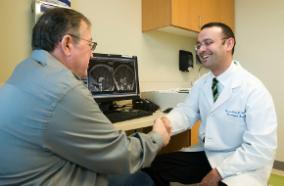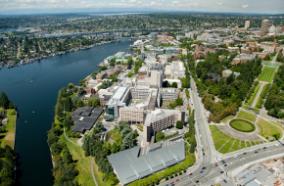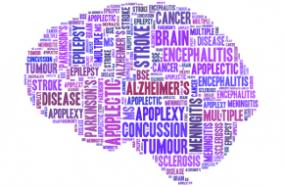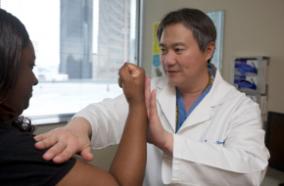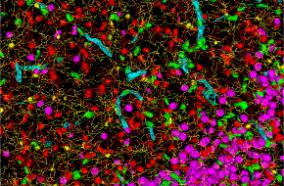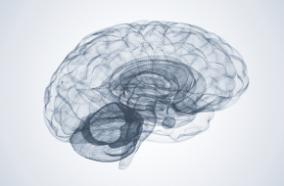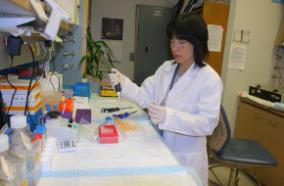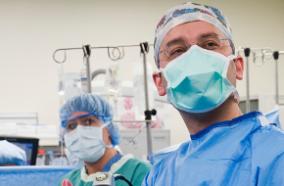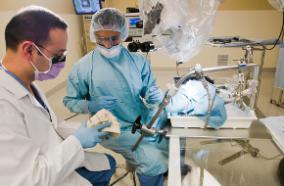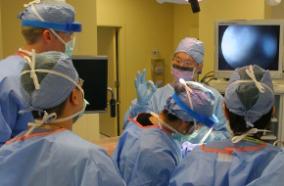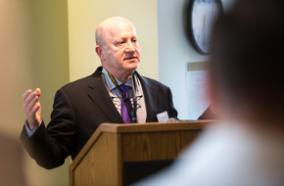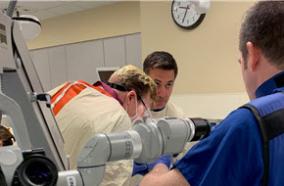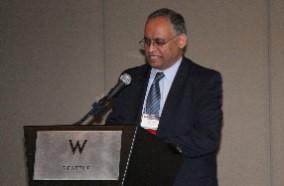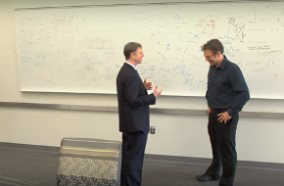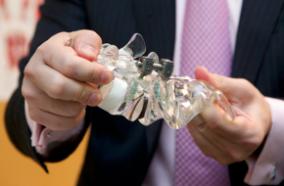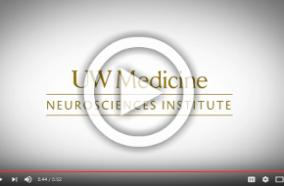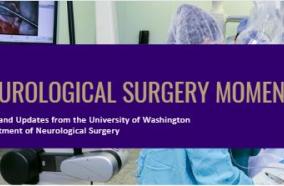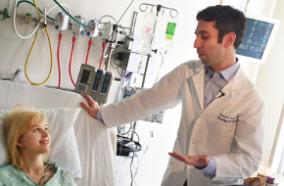Program Overview
The University of Washington Stereotactic and Functional Neurosurgery service offers a high-volume training environment across the subdisciplines of Stereotactic and Functional Neurological Surgery (SFNS). The surgical care is delivered across multiple hospitals (University of Washington Medical Center Montlake, Harborview Medical Center, University of Washington Medical Center Northwest) with an emphasis on breadth of surgical approach and technique. The fellowship aims to provide a broad clinical and research training experience in all SFNS subspecialty areas: epilepsy surgery, movement disorder surgery, pain, eloquent cortex brain tumor surgery, and peripheral nerve surgery. We believe this comprehensive, multimodality training experience to be critical to the training of the next generation of functional neurosurgeons. The breadth and depth of clinical and research opportunities at UW will provide fellows the opportunity to craft an individualized training plan that best aligns with their needs and goals.
Accreditation
Accredited by the Committee on Advanced Subspecialty Training (CAST)
Core Clinical Learning objectives: UW SFNS is concerned with stereotactic techniques needed to localize and treat target structures in the central and peripheral nervous system, including framed and frameless systems, electrical recording and stimulation, and the subsequent alteration of the nervous system via ablation or stimulation, to treat neurological diseases. By the end of the fellowship, the trainee will be able to:
-
Direct comprehensive patient care for movement disorders, epilepsy and pain, including diagnosis, evaluation for and performance of surgical procedures, and integration of non-operative and surgical therapies in patient management.
-
Lead stereotactic trajectory planning and electrode placement using multiple stereotactic systems (Leksell frame, ROSA robot).
-
Perform both awake (use of microelectrode recording and stimulation testing) and asleep (use of intraoperative imaging) techniques for implantation of deep brain stimulation for movement disorders indications.
-
Implement hypothesis-based stereo-EEG planning and implantation for seizure onset mapping.
-
Confidently perform open resections or stereotactic ablations for epilepsy and oncologic indications. This training leverages functional cortical and subcortical anatomic considerations, electrocorticography, cortical functional mapping, subpial and microscopic dissection techniques, and ablation techniques including Laser Interstitial Thermal Therapy (LITT) or radiofrequency ablation (RFL).
-
Evaluate patients with various pain conditions and perform a variety of surgical interventions (e.g. microvascular decompression, percutaneous lesioning, neuromodulation of brain or spinal cord, cordotomy).
-
Evaluate and surgically treat patients with paralysis secondary to peripheral nerve injury. Surgical interventions include nerve transfer surgery for brachial plexus or spinal cord injury.
Research expectations: The fellow will be expected to lead at least one significant project of investigation within the domain of stereotactic and functional neurosurgery. This may include but are not limited to basic science research related to brain-computer interface development, physiology of brain stimulation and plasticity, and cognitive neuroscience inquiry using human electrophysiology data sources. The fellow may also elect to pursue clinical, outcomes-based research within the stereotactic and functional neurosurgery.
Deployment and Impact: The fellow will participate for at least six months in primarily clinical training, largely in the clinic and operating room with Andrew L. Ko, MD and Benjamin L. Grannan, MD. Operative cases will include resident participation and it is expected that the fellow enhances and fosters resident surgical education. The fellow will also share attending-level call responsibilities. Additionally, the fellow will be encouraged to identify dedicated research time to facilitate the fellow’s academic growth and career. The fellow will receive excellent career development mentorship and support through the job search process.
Evaluation: The fellowship director, in conjunction with supervising members of staff, will evaluate the knowledge, skills and professional growth of the fellow in a timely manner. Formal written evaluation will be performed at six months; a permanent record will be maintained and accessible to the fellow and other authorized personnel. Annual reports on case numbers completed by fellows will be maintained for CAST accreditation. A written final evaluation will be provided to the fellow on completion of the program.
How to Apply
The fellowship will be moving to the SF Match for fellowships starting with the 2028-2029 fellowship year. Interested applicants should apply via the following link once applications open:
https://sfmatch.org/specialty/functional-neurosurgery-fellowship/overview
Fellowship positions now filled and/or applications now closed:
- 2026-2027
- 2027-2028
Eligibility Requirements
Applicants must have completed an ACGME (or foreign equivalent) accredited neurosurgery residency program and be able to obtain a Washington license to practice.
Selection Process
Once all required documents (including: a letter of interest, curriculum vitae, and three letters of recommendation) have been received and reviewed, selected candidates will be contacted to schedule interviews.
Stipends & Benefits
Vacation, pay, and benefit specifics will be discussed at the interview. However, the University of Washington offers a highly competitive compensation package.
CONTACT INFORMATION
For more information about the UW Neurotrauma Fellowship Program, please contact: nsfellowship@uw.edu
Fellowship Faculty
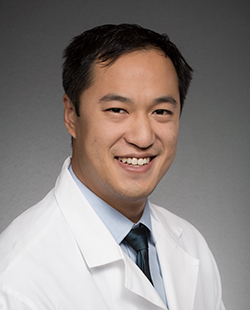
|
Fellowship Director Associate Professor, Neurological Surgery Roy and Maxine Johnson Endowed Professor in Epilepsy Chief of Neurological Surgery UWMC-Montlake, UWMC-Northwest Associate Residency Program Director |
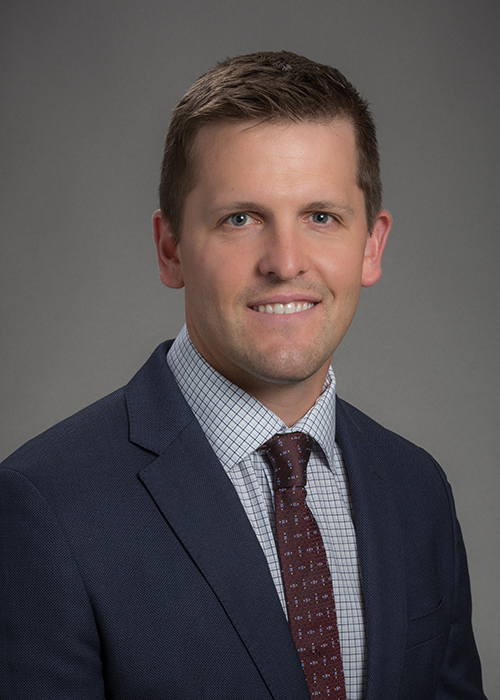
|
Fellowship Co-Director Assistant Professor, Neurological Surgery |

